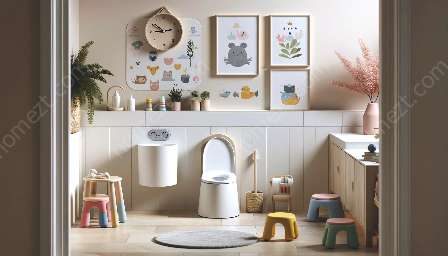Potty training regression can be a frustrating experience for both parents and children. After making progress in toilet training, it can be disheartening to see a child revert to soiling their pants or refusing to use the potty. However, it's important to understand that regression is a common part of the potty training process, and there are effective strategies for overcoming it.
Causes of Potty Training Regression
Understanding the potential causes of potty training regression is essential for addressing the issue. Regression can occur due to various reasons, such as:
- Stress or Changes: Significant changes in a child's life, such as starting nursery or dealing with a new playroom environment, can trigger regression. The stress of adapting to new routines and surroundings can impact a child's ability to focus on potty training.
- Physical Issues: Some children may experience physical discomfort or issues, such as constipation or urinary tract infections, which can lead to regression in potty training.
- Emotional Factors: Emotional factors, including anxiety, fear, or insecurity, can also contribute to potty training regression. For example, a child may feel anxious about using unfamiliar toilet facilities at nursery or in the playroom.
Challenges of Dealing with Potty Training Regression
Dealing with potty training regression presents several challenges that can impact both parents and children. These challenges may include:
- Parental Frustration: Parents may feel frustrated or disappointed when faced with potty training regression, especially after making significant progress. It's important for parents to have patience and understanding during this phase.
- Child's Emotional Response: Children may experience feelings of embarrassment or confusion when they regress in potty training. It's crucial for parents to offer support and reassurance without adding pressure or criticism.
- Inconvenience: Dealing with accidents and frequent trips to the potty can be inconvenient for both parents and children, especially in a nursery or playroom setting where there may be limited access to bathroom facilities.
Strategies for Overcoming Potty Training Regression
While potty training regression can be challenging, there are effective strategies to help parents and children navigate this phase successfully. Some helpful strategies include:
- Establish Consistency: Maintaining consistency in potty training routines, regardless of the nursery or playroom environment, can provide children with a sense of stability and predictability.
- Open Communication: Encouraging open communication with children about their feelings and concerns related to potty training can help address emotional barriers that contribute to regression.
- Offer Positive Reinforcement: Praising and rewarding children for their efforts, even small steps of progress, can boost their confidence and motivation to overcome potty training regression.
- Address Underlying Issues: If physical or emotional factors are suspected to be contributing to regression, it's essential to address these issues through medical consultation or seeking professional guidance.
- Patience and Support: Providing a supportive and patient environment for children during potty training regression is crucial. Parents should refrain from pressuring or shaming children and offer understanding and encouragement.
By applying these strategies and understanding the underlying causes of potty training regression, parents can effectively guide their children through this challenging phase and help them resume progress in their toilet training journey.


